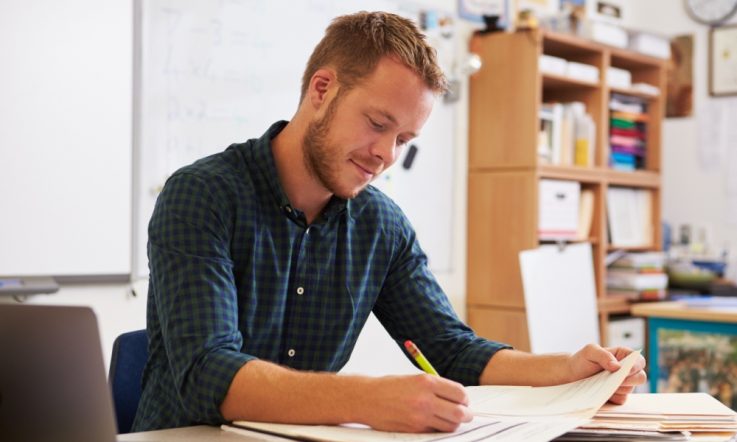No matter how many you have experienced, or how established you are in your career, attending a job interview can be a daunting experience. What do you do when you are unsure how to answer a question? What should you remember to bring along with you? In this Q&A, we speak with three principals about their top tips.
Amanda Wicks is the principal at Caboolture East State School in Queensland and an Executive Member at Beginning and Establishing Teachers' Association (BETA). Anne Ford is a long-serving principal, currently at John Wollaston Anglican School in Perth. She is also a board member of the Principals Australia Institute (PAI) Certification Advisory Board. Carolyn Clinton is the principal at Risdon Park Primary School in South Australia and is in her 18th year of working as a principal.
Q: What should applicants bring to the interview? What should they leave at home?
Amanda Wicks: If they can bring with them things that they've completed during a practicum experience and sometimes in an interview situation those things may not actually be referred to, but it doesn't hurt to have them with you … you've got to tell the story of what those experiences have been, what responsibilities you've had through your practicum experiences and how you can show that you are developing your teaching and learning practices.
Anne Ford: Applicants should be discerning about what is brought to interview. It must add value. Large portfolios are unnecessary. Applicants need to bring their best self. It's about professional personal presentation and being well-prepared for the interview. It is important to have a good sense of current local, state and national issues and trends in education. The important thing for applicants to leave at home is their ego.
Carolyn Clinton: Applicants can bring their CV and any example artefacts that demonstrate their practice. Bring a willingness to talk openly about their strengths and challenges.
Q: What are some things to keep in mind while you're preparing to attend an interview?
AW: I think for interview preparation it's also good to try and find out a bit about the school and the context or community that they're in … because obviously schools are looking for a best fit … so you have some readiness about some potential things that the school might be already doing. That just helps build your confidence when you're asked different questions by your school by knowing a little bit about it. And you can access information through the school websites, Facebook even; go and look at some past newsletters.
CC: [Applicants] often try and answer the questions the way that they think that you want to hear, rather than being truthful and showing themselves to be who they are. I choose graduates and early career teacher[s] to teach at my site, often over experienced teachers, especially when they are keen, enthusiastic, looking to learn, which means being prepared to make mistakes and learn from them.
Q: I'm sure we've all found ourselves in an interview unsure how to answer a question we've just been asked. What would you suggest applicants do if they're asked a question they're not sure how to answer?
AW: Look, that's really tricky. I think if you're not understanding, for example, the terminology that might be being used – because we all sometimes have our own words – it's like when we talk about student engagement: are we talking about engagement in learning or are we talking about behaviour? So some people actually have different understandings of the words they use. So, asking clarifying questions would be my starting point.
Because, yes, you could try and answer a question, but ultimately that would just reflect that you're making it up. So I would start with asking the clarifying questions, and then saying, ‘well look, I haven't had any experience with that.' And that's going to be okay, because [if] you're also beginning [your teaching career], you might not have genuinely been in that situation, so it's also okay to declare that if you haven't had that experience, or if you're not sure.
AF: At the beginning of every interview I always say to candidates, take the time to respond, think about your answer before you respond. Unfortunately on some occasions a response doesn't come to mind or we actually don't know the answer. I suggest that candidates ask for the question to be repeated, and then if they can't come up with a response, ask to go on to the next question and request the panel to revisit this question at the end of the interview. I am happy to accommodate this request, as the panel always seeks to get the best out of the applicant.
At the end of the interview, when the question is asked again, if you don't know, I would always advocate that you respond honestly, rather than guessing. Sometimes questions are difficult … it might be that no one can answer them and the panel wishes to see how people respond. From my perspective, if someone is honest and indicates that ‘it's just not within my experience, I'm sorry I can't provide a response', it's not held against them.
CC: Not to worry, as interviews are not meant to be a trial for right and wrong answers. I like to make applicants feel at ease, so I generally re-phrase questions and work towards making our time together a discussion and sharing time, rather than a ‘grilling'.
Q: Can you describe your most memorable candidate? Why were they so memorable?
AW: One particular beginning teacher that I interviewed some time ago, what made her interview, I guess exemplary … was the connection that she had and how she knew the students through her planning. And then how she was monitoring that learning and what she was doing to adjust the learning based on what the teachers were showing. So how she was tracking and monitoring, and she had some really clever ways of doing that for herself that she'd obviously learned with the support of her mentor teacher, but she was really able to reflect on her teaching and then make the adjustments based on what she knew about her learners.
AF: A question I often ask teachers is ‘what do you enjoy about your job?' and for those who truly enjoy their job and have a genuine passion for the profession, there's a spark in their eyes and authentic enthusiasm in their voice.
Certainly the best ones I've interviewed have this genuine spark and are well-prepared and knowledgeable. This includes knowledge of the school which extends beyond its website. The candidate might say that ‘I particularly identified with the core values of your school and I'm really interested in these particular initiatives included in your strategic plan.'
The successful applicant is always professionally presented, punctual and demonstrates good interview technique. Good eye contact, appropriate gestures, posture and natural humour are all important.
CC: They genuinely demonstrated enthusiasm, commitment to their profession, willingness to learn and work as part of a team. Thinks creatively, with a growth mindset, and loves working with children. There is also a calmness in their manner and inner professionalism; they are an active listener and easy to talk to.
As a school leader, what advice would you give to those applying for a teaching position at your school?
As an early career teacher, have you recently been through an interview process? What was your experience like?



